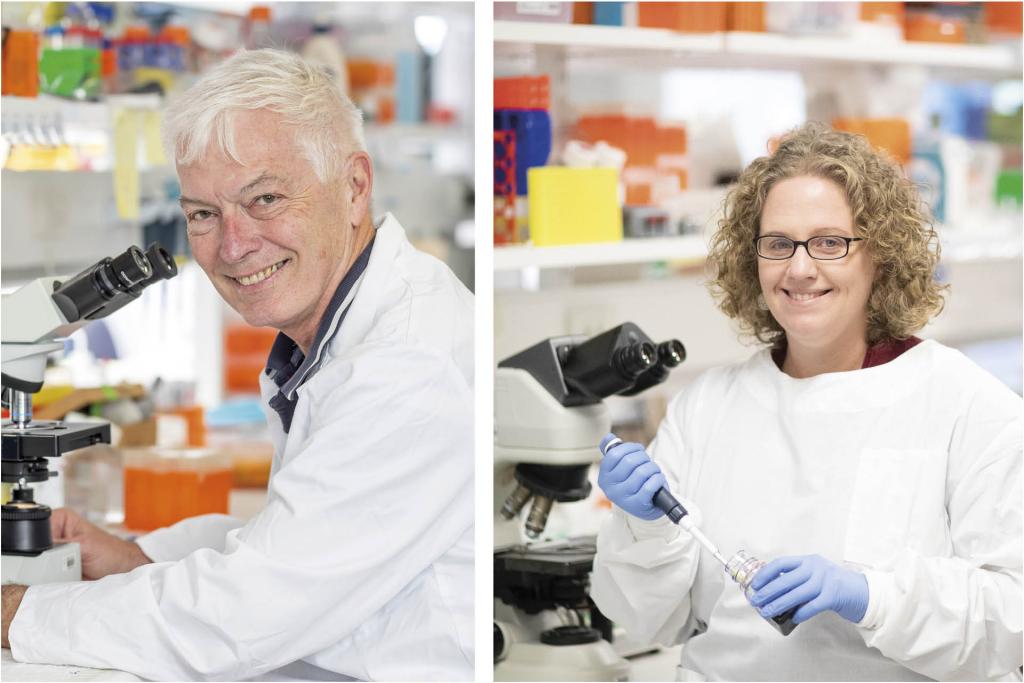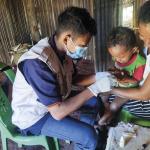The Malaria Vaccine Project: Saving children’s lives
Funded by Rotary District 9640, Phase 1 human trials of a groundbreaking malaria vaccine are now underway on the Gold Coast.
Malaria has plagued humanity for millennia, responsible for more deaths than any other disease in history. Today, it remains a significant global health threat – particularly for the world’s youngest and most vulnerable.
According to the World Health Organisation, 263 million cases of malaria were recorded in 2023, resulting in 597,000 deaths. Of these, 95 per cent of deaths occurred in Africa and a staggering 80 per cent were children under the age of five. But the Western Pacific is not immune, with 1,747 million cases and 3,400 deaths in 2023. New Guinea continues to record high case numbers, reminding us that this is a crisis unfolding right on our doorstep.
At its core, malaria is a disease of children. Every minute, a child dies from malaria.
And the threat is intensifying. Climate change is expanding the habitat of malaria-carrying mosquitoes. Drug resistance is rising. And the most dangerous species – Anopheles stephensi – is now spreading to urban areas in Asia and Africa, where previously malaria was mainly a rural disease.
Despite this sobering reality, hope is emerging from the Gold Coast, Qld. At Griffith University’s Institute for Biomedicine and Glycomics, an innovative team led by Professor Michael Good AO and Associate Professor Danielle Stanisic has spent more than a decade developing a groundbreaking vaccine called PlasProtecT. And Rotary has been with them every step of the way.

PICTURED RIGHT: Professor Michael Good. LEFT: Associate Professor Danielle Stanisic.
From lab bench to human trials
The journey began in 2013, with preclinical studies showing promise in rodent trials. Using a live, chemically treated Plasmodium parasite incapable of replication, the vaccine proved broadly protective and triggered a strong T-cell immune response. A 2014-15 pilot study in humans confirmed the vaccine’s safety and immune activation.
However, significant progress required funding. In March 2017, Rotary District 9640 partnered with Griffith University to launch the Malaria Vaccine Project, with former Governor-General Sir Peter Cosgrove officiating at the launch. Under the guidance of founding chair Past District Governor Professor Graham Jones AM and current Chair PDG Sandra Doumany OAM, the initiative has raised $2.9 million to date.
This support has been critical to moving the vaccine from concept to clinic. In 2018, a world-first study tested whether PlasProtecT could prevent infection in malaria-free individuals exposed to the disease. Nearly half were completely protected. In 2019, researchers developed a freeze-dried powder version of the vaccine, making it far easier to store and transport – a vital consideration for remote regions.
Toxicology studies completed in 2024 confirmed the vaccine’s safety, and this year Phase 1 human trials are underway in Australia to evaluate the powder formulation in malaria-free volunteers. The next step – a Phase 2 trial in a malaria-endemic country – will require a global partner and a further $2.5 million in funding.
District 9640 is once again stepping up. Determined to see this vaccine reach the children who need it most, the district has committed to supporting the next phase of vaccine manufacturing and trial implementation.
The ultimate goal? A safe, effective and affordable malaria vaccine that could save millions of lives.
How to help
- To contribute to this lifesaving project, visit malariavaccineproject.com
Click on Project 24-2022-23 and follow the prompts. - Donations can be via direct debit or credit card.
- For further information, contact Chairperson PDG Sandra Doumany OAM on 0418 150 240.
Related news
Clear water, clear minds: Safe water for Timor-Leste
Rotary delivers safe drinking water to schools in Timor-Leste, improving health, learning and resilience.
The optimist
Bill Gates renews commitment with Rotary to end polio, accelerating global health impact over next 20 years.
PolioPlus: Rotary’s boldest bet and ultimate legacy
Female vaccinators like Afia are key to Rotary’s final push to end polio and strengthen global health.
Join our newsletter for the latest updates
"*" indicates required fields


